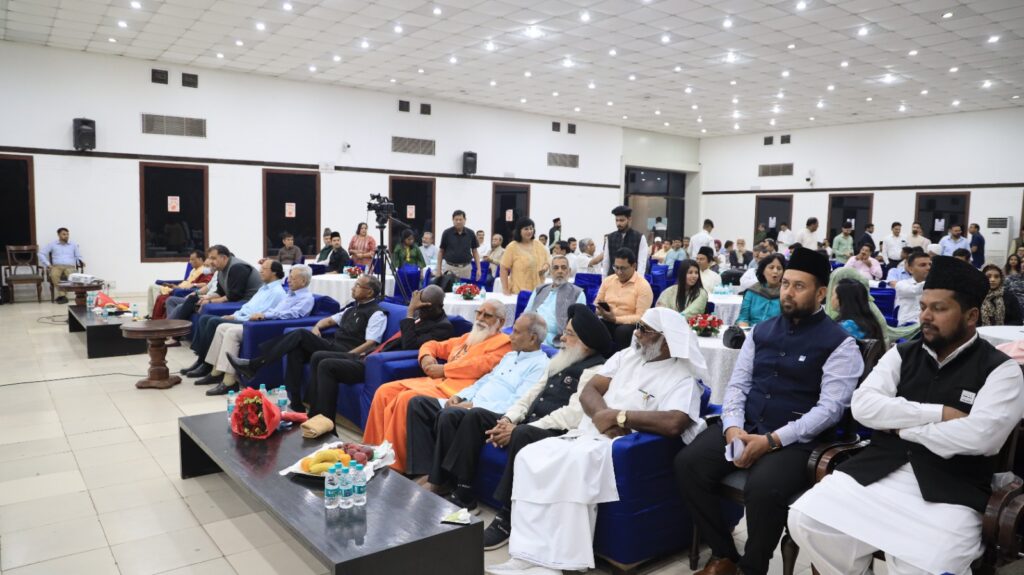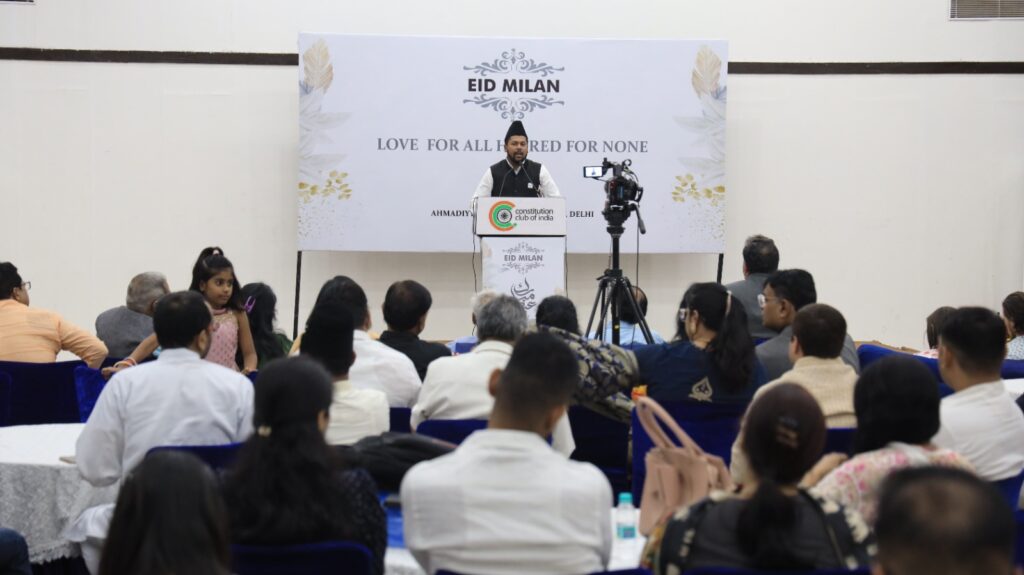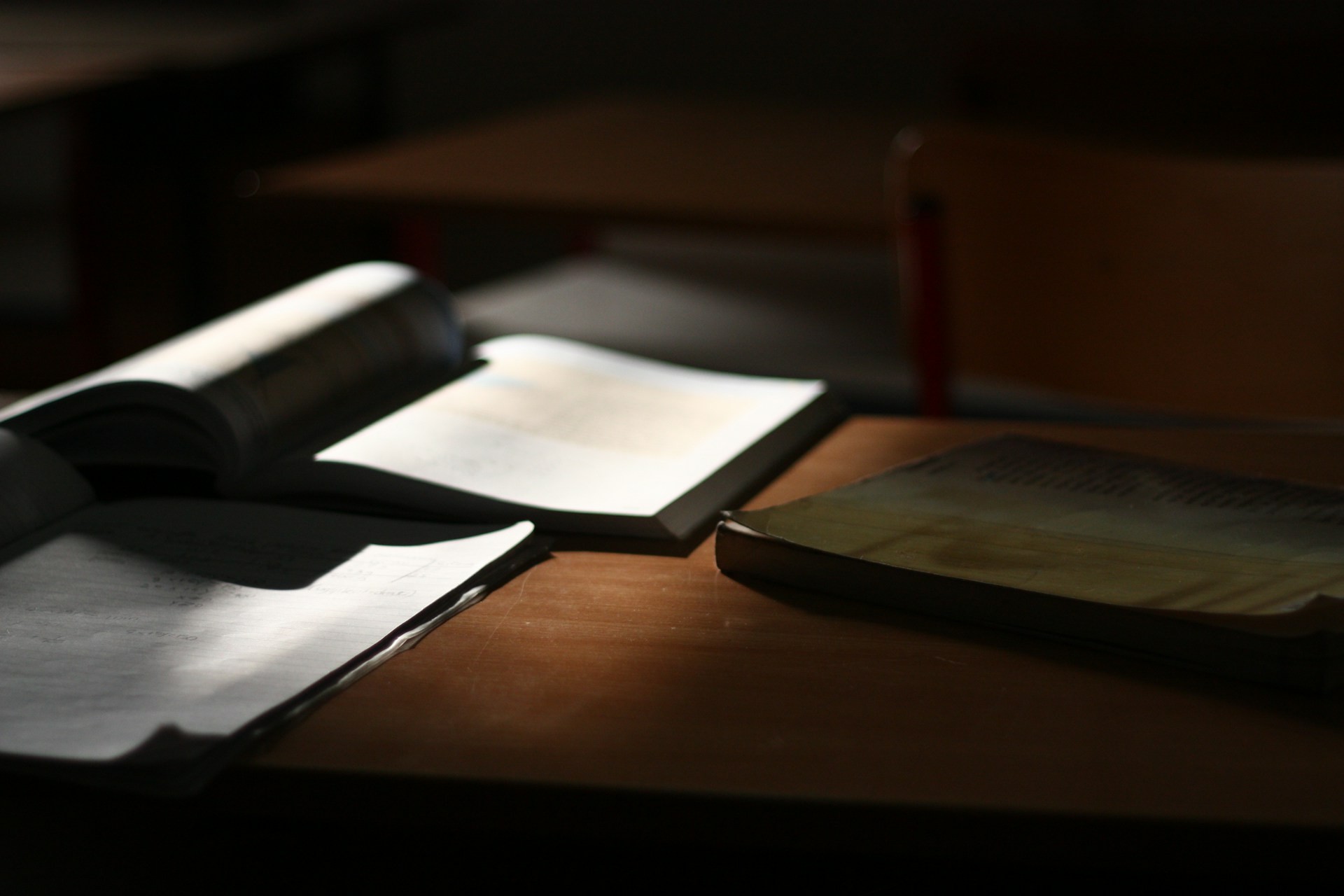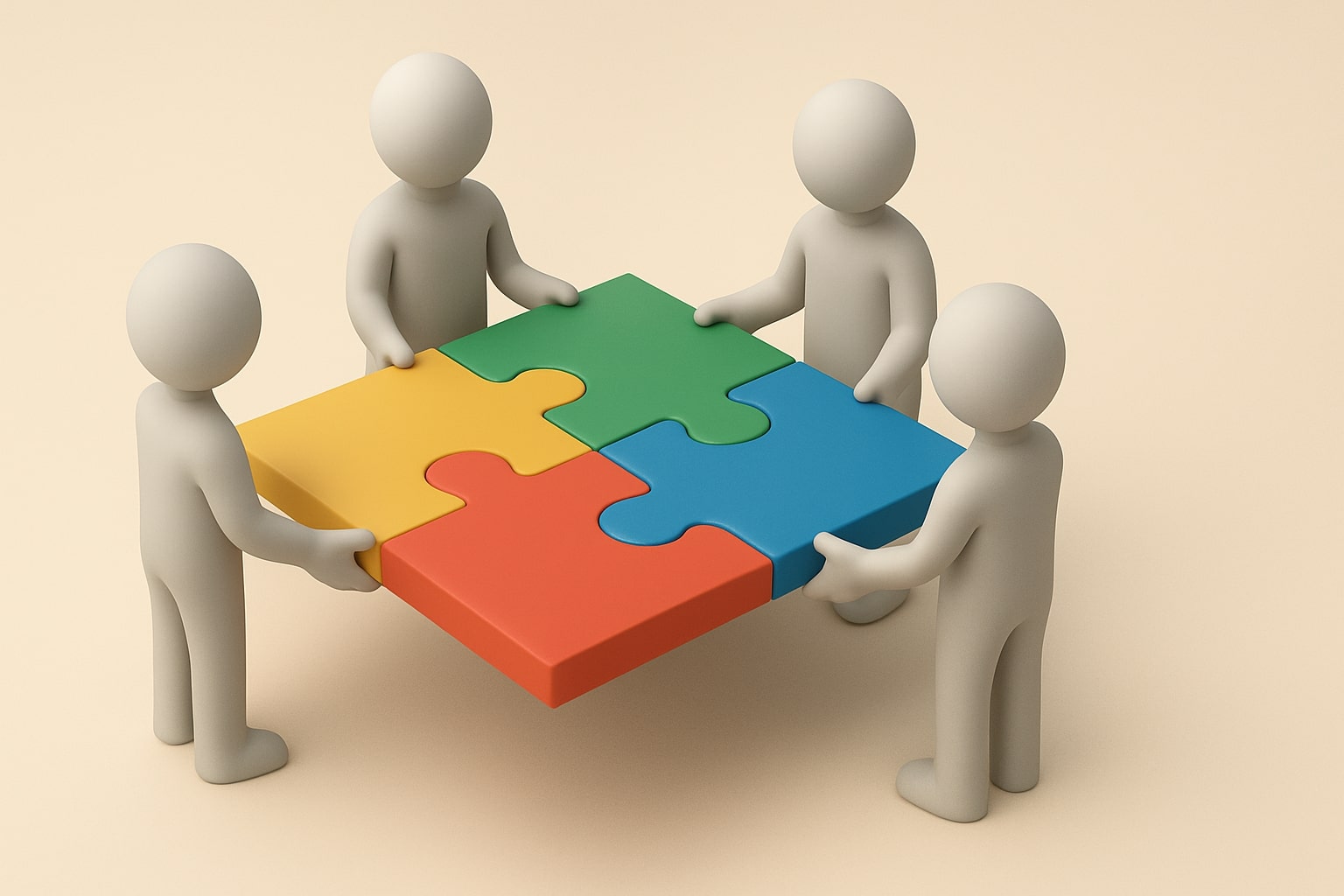FIROZ NAEEM, PRESIDENT, AHMADIYYA MUSLIM COMMUNITY, DELHI
On 29 April 2023, the Ahmadiyya Muslim Community’s Delhi chapter organised Eid Milan at the Constitution Club of India. The event was chaired by Mr K Tariq Ahmad, the National Head of the Community’s young men’s auxiliary, Khuddamul Ahmadiyya.
Before the beginning of the program, the national anthem was played, after which the formal session commenced with the recitation of the Holy Quran and Urdu translation by Shaikh Fatehuddin, the vice president of the Ahmadiyya Muslim Community, Delhi. After that, my humble self, in my capacity as the Community’s president in Delhi, welcomed the guests and presented a brief introduction to the Ahmadiyya Muslim Community. A documentary introducing the Community and highlighting its humanitarian activities and peace endeavours was also played during the event.

This was followed by short speeches by seven dignitaries. One of the speakers, Mr Paramjeet Singh Chandokh, chief advisor of Delhi Sikh Gurudwara Management Committee, commended the Ahmadiyya Muslim Community for the initiative and said that such programs exemplified universal brotherhood. Dr Chand Bhardwaj, the vice president of the Global Harmony Association (GHA), said that religions were sent for the sake of humanity but were later corrupted and interpolated. He added that the Holy Founder of the Ahmadiyya Muslim Community, Hazrat Mirza Ghulam Ahmadas, re-established the true purpose of religion and presented perfect solutions to the problems the world is faced with in this era. Before concluding, he specifically elicited positive remarks on the teaching of Islam Ahmadiyyat that emphasised respect for all religious founders and figures.
In his presidential address, Mr K Tariq Ahmad said that Ramadan is observed to nurture values of compassion and sympathy for humanity. In this sense, he added, Eid comes with the message that we should make the lessons of Ramadan a permanent part of our lives.
The program concluded with silent prayers led by the chairperson, after which dinner was served. The event saw a gathering of over 200 guests, which included followers of different religions, representatives of NGOs, social workers, bureaucrats, advocates, and students, among many others.













0 Comments